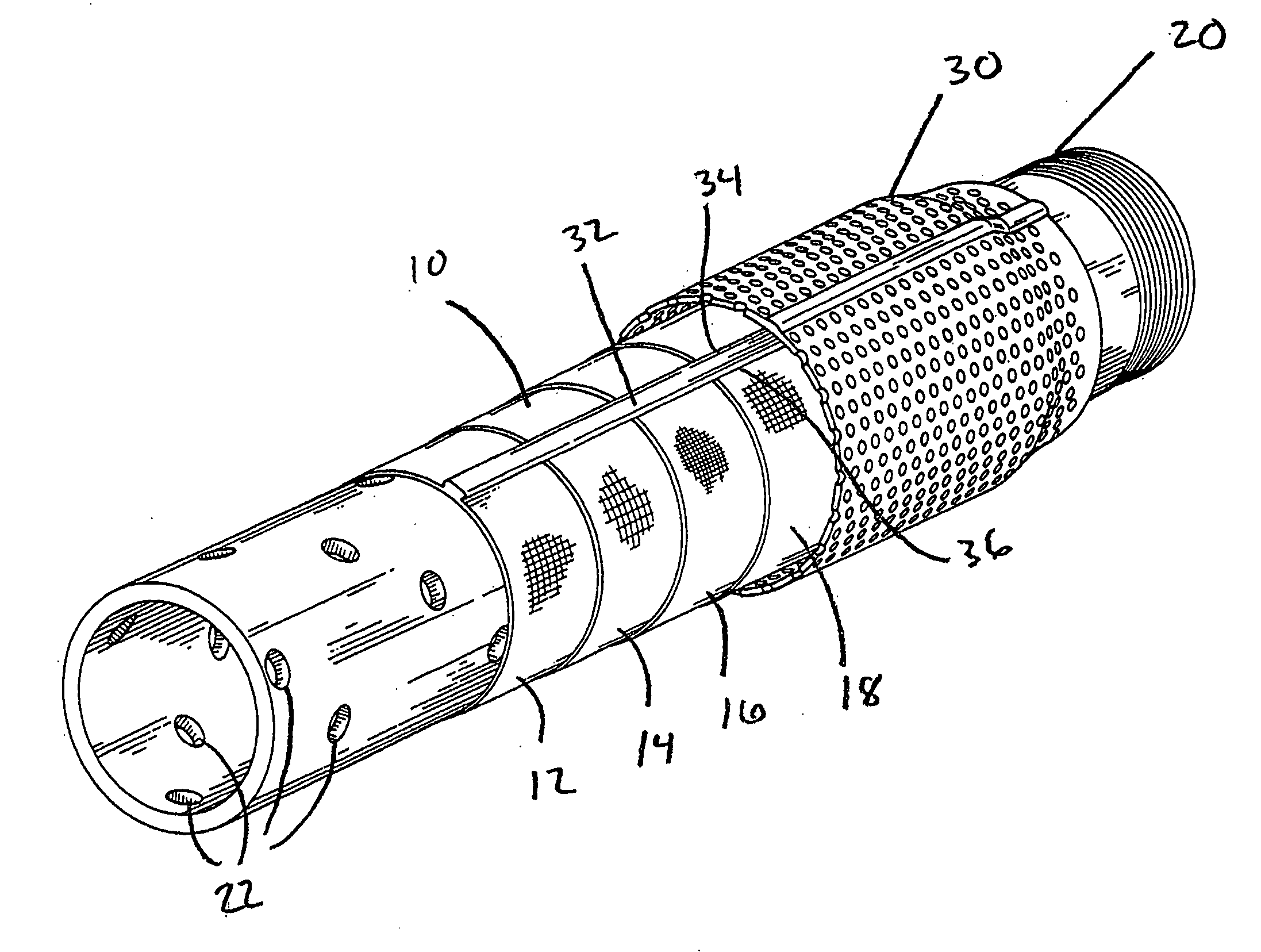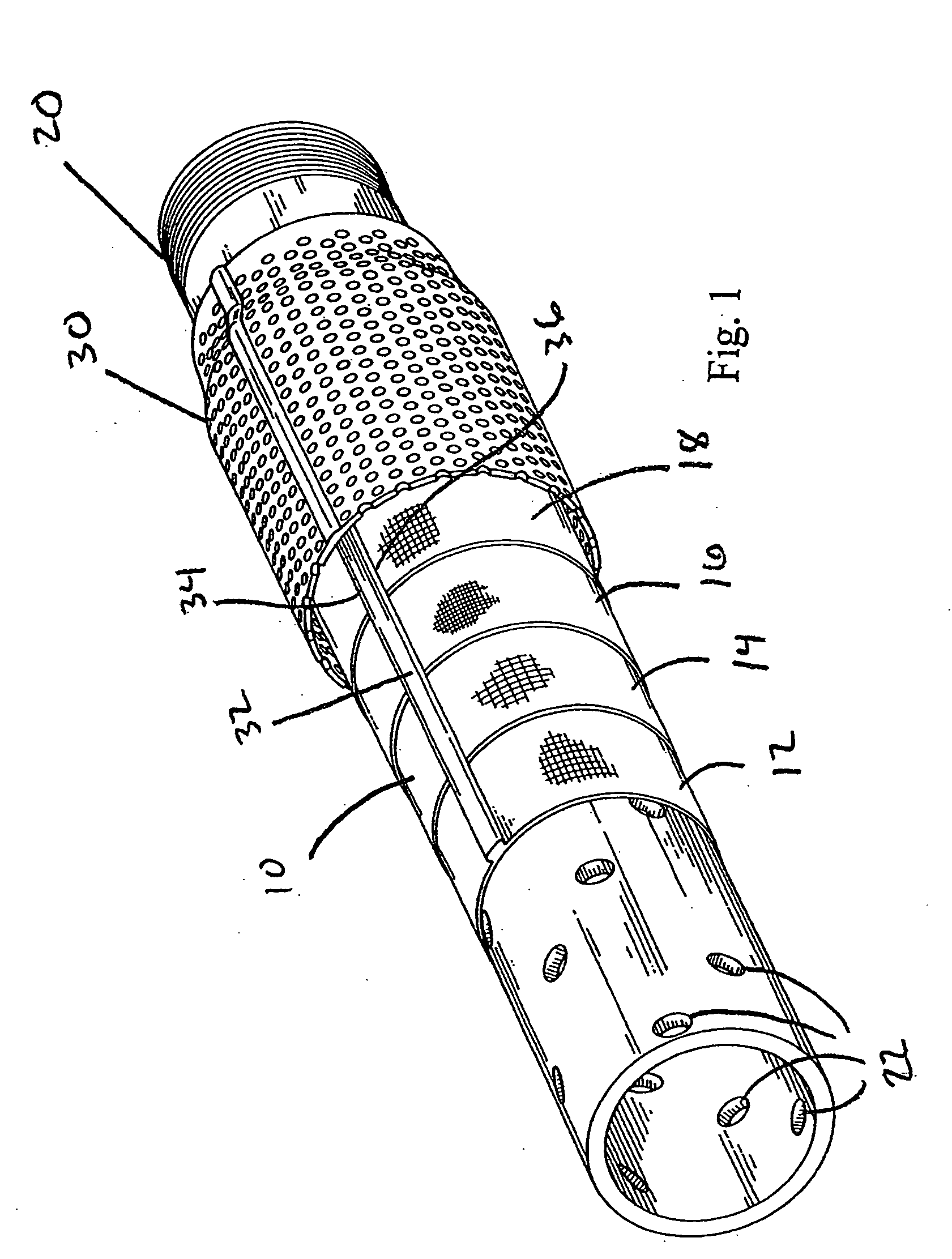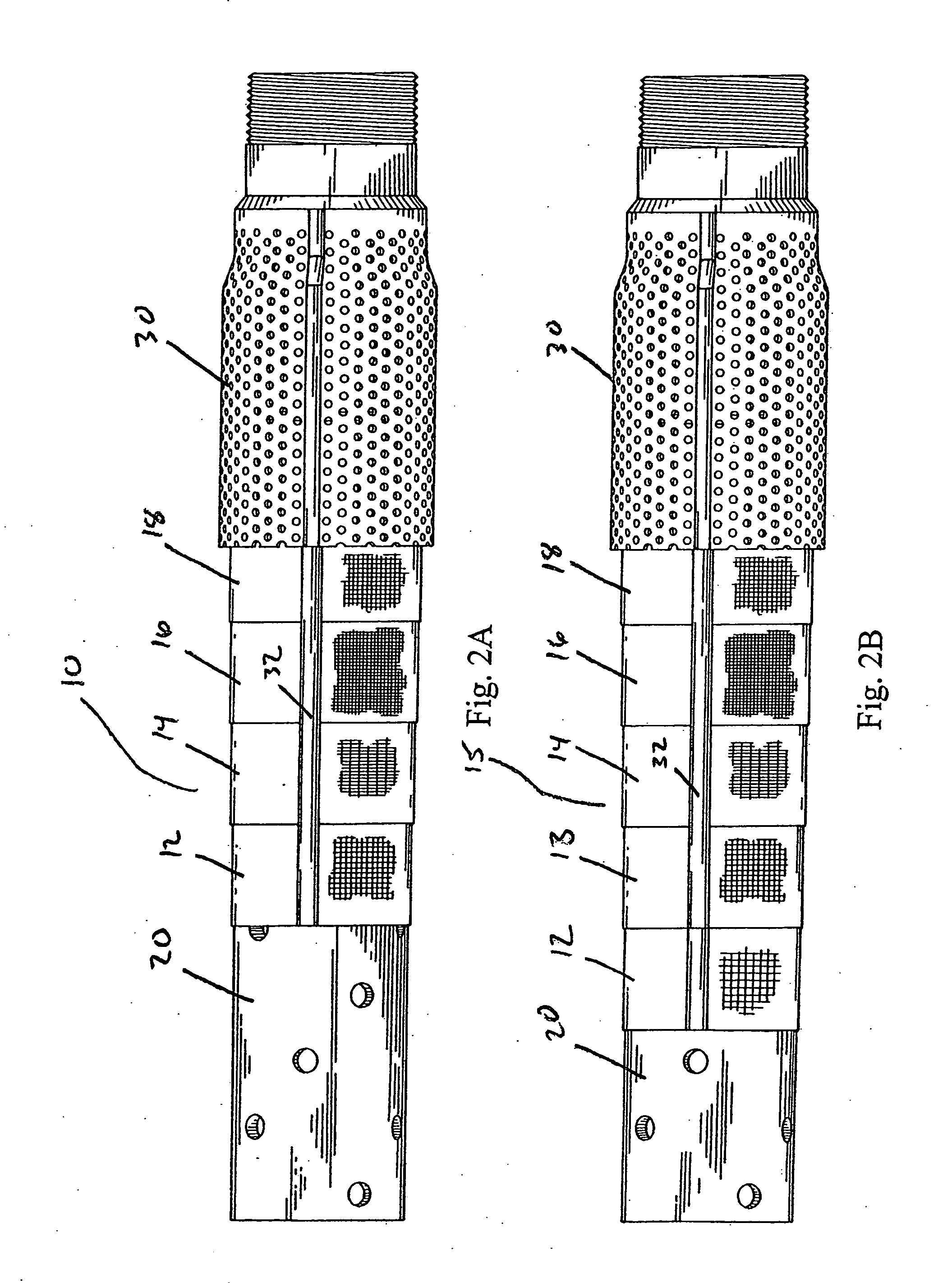Particle control screen with depth filtration
a technology of particle control and depth filtration, which is applied in the direction of drinking water installation, wellbore/well accessories, etc., can solve the problems of heavy oil being difficult to remove from the formation, heavy oil being generally also difficult to filter than conventional oil deposits, and reducing the life of the filter. , to achieve the effect of preventing particle build-up, increasing the particle-holding capacity of the filter, and prolonging the li
- Summary
- Abstract
- Description
- Claims
- Application Information
AI Technical Summary
Benefits of technology
Problems solved by technology
Method used
Image
Examples
example 1
[0049]A screen assembly is prepared with a desired filtration micron rating of 125 micron. The screen assembly includes two support layers and four filter layers, as shown in Table 1 below.
TABLE 1LayerMesh sizePore sizeOuter filter30 × 30 × 0.012540 micronIntermediate filter50 × 50 × 0.009280 micronIntermediate filter80 × 80 × 0.0055180 micronInner filter24 × 110125 micronOuter support layer20 × 20 × 0.016Inner support layer16 × 16 × 0.023
example 2
[0050]A screen assembly is prepared with a desired filtration micron rating of 180 micron. The screen assembly includes two support layers and three filter layers, as shown in Table 2 below.
TABLE 2LayerMesh sizePore sizeOuter filter30 × 30 × 0.012540 micronIntermediate filter50 × 50 × 0.009280 micronInner filter80 × 80 × 0.0055180 micronOuter support layer20 × 20 × 0.016Inner support layer16 × 16 × 0.023
example 3
[0051]A screen assembly is prepared with a desired filtration micron rating of 250 micron. The screen assembly includes one support layer and three filter layers, as shown in Table 3 below.
TABLE 3LayerMesh sizePore sizeOuter filter24 × 24 × 0.014700 micronIntermediate filter40 × 40 × 0.010380 micronInner filter12 × 95250 micronSupport layer16 × 16 × 0.023
PUM
 Login to View More
Login to View More Abstract
Description
Claims
Application Information
 Login to View More
Login to View More - R&D
- Intellectual Property
- Life Sciences
- Materials
- Tech Scout
- Unparalleled Data Quality
- Higher Quality Content
- 60% Fewer Hallucinations
Browse by: Latest US Patents, China's latest patents, Technical Efficacy Thesaurus, Application Domain, Technology Topic, Popular Technical Reports.
© 2025 PatSnap. All rights reserved.Legal|Privacy policy|Modern Slavery Act Transparency Statement|Sitemap|About US| Contact US: help@patsnap.com



